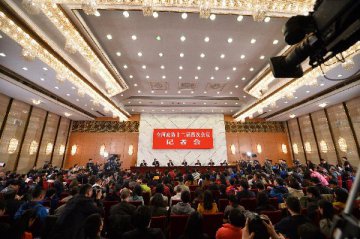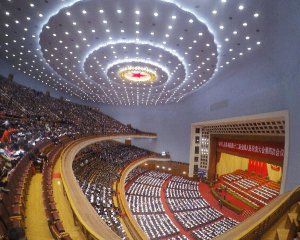
The draft outline of the 13th Five-Year Plan on March 5 has been submitted for deliberation in the 4th meeting during the 12th annual session of National People's Congress (NPC), and overall planning for reform and development of the capital market in next five years has been determined. It is a key point of the outline to positively create an open and transparent capital market with sound development, improve the proportion of direct financing, and lower the leverage ratio. The sub-tasks include making every effort to implement registration-based IPO system for the stock market, developing multilevel equity financing market, establishing a new board for strategic emerging industries, deepening the reform of ChiNext Board and the National Equities Exchange and Quotations (NEEQ, New Third Board), standardizing and developing the regional equity markets, and building board-transfer & exit mechanisms and etc.
As a beginning of the 13th Five-Year Plan period, 2016 means a start, in which the government work report highlights the current situation, and proposes various measures as key tasks of this year, such as pushing the reform and legalization construction of the stock and bond markets, enhancing the sound development of multilevel capital market, improving the proportion of direct financing, and timely initiating the Shenzhen-Hong Kong Stock Connect program. However, arrangement related to registration-based IPO system attracting wide attention has not been mentioned in the report.
Only solid basic system achieves smooth progress for important reforms
All market players focus on the issues linking to registration-based IPO system right after the issuance of the government work report this year and the draft outline of the 13th Five-Year Plan. And opinions vary in the market.
Actually, both “pushing the reform and legalization construction of the stock and bond markets” proposed in the government work report and “positively creating an open and transparent capital market with sound development” specified in overall outline of the 13th Five-Year Plan show that, as a significant and basic work, reinforcing the legalization construction of the capital market and improving the market system still need to be pushed by intensified strength now and in the future. It is difficult to gain substantial effect for any important and market-oriented reform, bearing huge risk, if the weaknesses of capital market cannot be reinforced.
Based on this, the said draft has proposed to “make every effort to implement registration-based IPO system for the stock market”, partially, it is easy to guess what conditions will be created for smooth reform of the registration-based IPO system.
The reforms related to the key fields of capital market including registration-based IPO system should be carried out smoothly without extra effort, according to Wu Xiaoling, deputy to the NPC and also vice chairwoman of Financial and Economic Committee under the NPC.
She indicated in the interview that the core of registration-based IPO system is information disclosure and let the market master the initiative. While legalization construction and building & improvement of the multilevel market system are the basic requirements to implement the registration-based IPO system. The registration-based IPO system, after the said two jobs are well done.
Wu particularly mentioned that unlawful acts in the securities market must be severely hit, such as false information disclosure cheating the investors, insider trading and market manipulation, so that the market information disclosure can be reinforced. “The penalty punishing the unlawful acts mentioned above is far from enough based on the existing terms of Securities Law, which should be revised with intensified punishment strength,” said Wu.
Hou Wailin, member of the national committee of CPPCC and also head of inspection team of the China Securities Regulatory Commission, also talked about the legalization construction’s importance in the reform and development process of the capital market. He told the journalist that the law cannot be enforced without authorization during the procedure of inspection and law enforcement, and further improvement in the basic laws and regulations for the market is beneficial to reinforce the efficiency and effect of inspection and law enforcement.
Furthermore, Lu Zhengwei also proposed that, although the government work report of this year does not mention the registration-based IPO system, the reforms such as pushing the reform on stock and bond markets, enhancing legalization construction and etc. will lay the foundation for sound and long-term development of the capital market, which will naturally provide favorable environment for the said system’s implementation.
Improve financing function
Multilevel markets make concerted effort
The draft outline of the 13th Five-Year Plan not only shows the way for important system reforms in the capital market but also makes arrangements in innovating concepts and enriching and optimizing factor market.
Besides the self-improvement of various systems in the market, the development of multilevel equity financing market will focus more on improving weakness, promote innovation on the basis of risk prevention, and build up and perfect the interconnection of various equity financing markets in forthcoming five years. The bond market, as an important tool in raising the proportion of direct financing, might also embrace considerable development. What are the priorities for the development of multilevel equity financing market? Specific work covered in the draft outline of the 13th Five-Year Plan includes establishing a new board for strategic emerging industries, deepening the reforms on the ChiNext Board and the National Equities Exchange and Quotations (NEEQ, New Third Board), standardizing the development of regional equity markets, and establishing and perfecting the mechanism of relisting companies, already listed on the New Third Board, on the ChiNext Board and the delisting system.
Gui Minjie, chairman of the Shanghai Stock Exchange (SSE) and a member of the Chinese People's Political Consultative Conference National Committee, indicated during media interview that the SSE is making “sound progress” in its launch of a new board for strategic emerging industries. Preparations including personnel and technologies all go smoothly.
As to the ChiNext Board reform, the Central Committee of the China Democratic League (CDL) proposes in a written presentation to reinforce the ChiNext Board market’s function in selecting the superior and eliminating the inferior, make delisting possible on the ChiNext Board market, and propel sustainable development of the ChiNext Board market by reinforcing its function in “eliminating the inferior”. Meanwhile, the Central Committee of the CDL also proposes to develop the New Third Board, expand the size of market makers in good order, launch multilevel and bidding transactions at proper time, and allow the piloting of quality enterprises listed on the New Third Board to be listed on the ChiNext Board.
As to standardizing the development of regional equity markets, insiders suggest that a cooperation mechanism between regional equity markets and the New Third Board can be established. The mechanism can guide institutional investors including recorded private investment funds with standardized operation to get involved in the regional equity markets. Regional equity markets should stick to be oriented private market, focus on enhancing its ability in providing mid- and small-sized enterprises with direct financing service and blaze new trails to operation and service modes.
In the meantime, the upsurge of Internet finance also brings the equity financing of more emerging business forms into investors’ view. The guidance on the development of Internet finance released by ten departments including the People’s Bank of China in last July proposes that on the premise of obeying the law and regulations, intermediate bodies engaged in equities crowd-financing can explore new business modes, give play to equities crowd-financing in the multilevel capital market, and better serve innovation-oriented startup businesses.
Besides, the draft of the outline for the 13th Five-Year Plan also prioritizes the development of the bond market, proposing to perfect the registration-based issuance system and the infrastructure of the bond market as well as quicken the interconnection of bond markets. It also proposes to develop financial services that are in line with innovation demand, steadily push forward innovation of bond products, facilitate the financing combination of high-yield bonds and equity-for-debt, and strive to expand financial leasing service.
The capital market will perfect its systems, deepen legalization construction and better serve economic transformation and upgrading; and the supply-side structural reform will undertake important tasks and bring numerous opportunities during the 2016-2020 period which will be a deciding one in building China into a comprehensively well-off society.
Deeper understanding of the strategic planning for capital market during the 13th Five-Year Plan period can help you to know more about the new movements of the capital market.
Translated by Jelly Yi & Jennifer Lu
























Latest comments